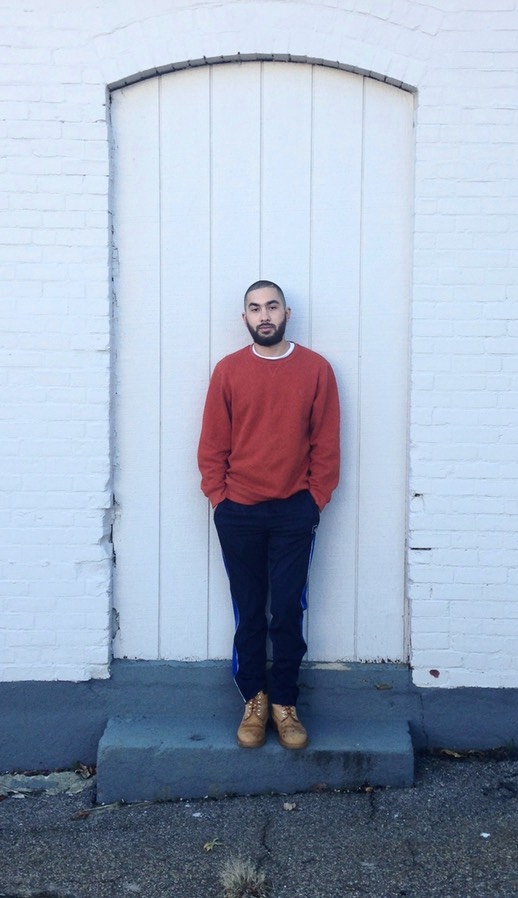
BIO
Orlando Hernández is a writer, tap dancer, and performance artist from Hoboken, New Jersey. He studied English and creative writing at Yale University. From 2013-2014 he lived in Spain, translating the work of Dionisio Cañas. His poems and translations have appeared or are forthcoming in Fence, New American Writing, PRISM international, and Circumference. Currently he lives in Providence, Rhode Island, working at schools and teaching tap dance. You can find him at www.orlyhernandez.com.
Concerning the Shape They Say the Dead Have
“and in the daytime they are…, and at
night they change into fruit”
–Fray Ramón Pané, An Account of the Antiquities of the Indians
I.
Our ancestors grow wooden—no matter,
they
are like statues covered in golden
bags.
Softly we folded the bag
in
northeastern cities the images
are
dripping from the pipes.
The
tree lent us images,
and
the wooden bowl of fruit,
that
we must avoid at all costs.
II.
They are like the skin of milk
A
boy sits across from an old Cuban man
sipping
coffee with milk;
the old Cuban talks about Clinton.
There
is suddenly a ripple
of
milk-skin clinging
to
his young mustache,
old
boy.
III.
They
saw some kind of persons
fall
from some trees,
coming
down among the branches.
These
forms were neither men nor women,
and
they went to seize them,
but
they fled as if they were eels.
They
told the cacique there were four of them,
and
so they took four of us
because
our hands are rough
and
thus we might hold on to them tightly,
and
so we are reaching for them
with
rasping fingers.
IV.
Your
live spirit appears to me often,
in
a man’s shape as well as a woman’s,
and I have sometimes wanted to do battle with it,
and
were I to lay my hands on it
it
would disappear,
and
I would put my arms elsewhere into some trees,
and
I would end up hanging from those trees.
The Case of the Zoo in Cuba
At
Al Mall’s, in Cranston, Evans told us about the time that Fidel tried
to have a
zoo brought to Cuba—but when they built the zoo there, and
opened it to the
public, people came and ate all the animals. Except for
the lion.
It
started with the monkey: they say the monkey was throwing shit at
people, and
the people got mad and ate the monkey. Then they ate all
the other animals—the
hippopotamus, the zebra, the giraffe. The only
animal they didn’t eat was the
lion, and the lion acts like a little doggy.
When
Fidel found out what happened at the zoo, he got very upset. So
he and his team
brainstormed and came up with a way to catch the
criminals. They built an
aquarium in the zoo, and put a couple of
psychological fish in the tank, and
opened it to the public.
When
the two criminals came to the aquarium, they looked at the fish,
and looked at
each other, and thought that they were going to eat the
fish. They tried to
find a way into the tank. The fish looked out at them.
The criminals—they were
brothers—looked in at the fish. The fish kept
looking out at them. The
brothers’ faces started to look like fish faces.
They kept looking like that.
When
the police came, the criminals were staring out at them like fish.
The police
took away the brothers. On the news later, I saw one of the
fish in the tank,
slowly saluting the camera.